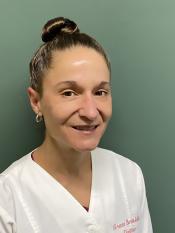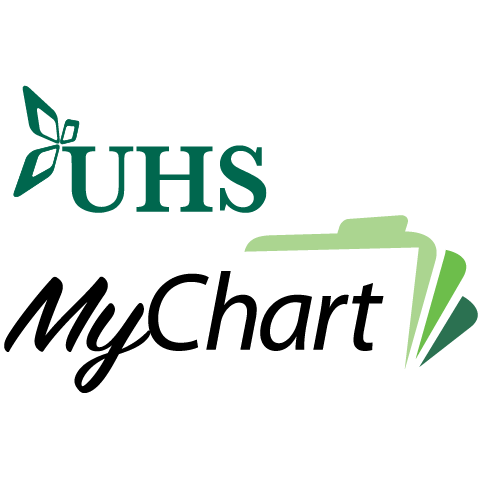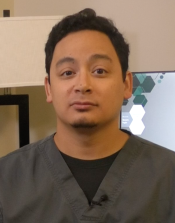
Nutrition Services
Preventative care counseling and nutrition therapy for all ages
Our UHS dietitians provide a wide variety of education opportunities for clients of all ages. Medical nutrition therapy provided by a registered dietitian includes a review of your eating habits, physical activity and lifestyle, as well as a thorough assessment of your nutritional status.
Services provided include preventive care counseling and referral-based therapy for:
- Weight management (children and adults)
- Diabetes
- Bariatrics
- Food allergies
- Cholesterol management
- Metabolic syndrome
- Gastrointestinal disorders
- Hypertension
- Disordered eating
- Kidney disease
For a referral to one of our dietitians, please contact your Primary Care provider.
Recipe of the Month
High Protein Pizza
Watch a video to the left, and click the link below for the recipe.
Read the Recipe! >
UHS News
-
 The 2024 DAISY Team Award goes to the UHS Palliative Care teamMay 07, 2024
The 2024 DAISY Team Award goes to the UHS Palliative Care teamMay 07, 2024UHS has expanded the DAISY Awards beyond individual nurses to include an annual team award. The team recognition will be made every year during National Nurses Week. This year the DAISY Team Award goes to the Nurse Practitioners of the UHS Palliative Care team.
-
 UHS honors memory of Dr. Francis GilroyMay 07, 2024
UHS honors memory of Dr. Francis GilroyMay 07, 2024He was known and respected throughout the Greater Binghamton community as a distinguished ophthalmologist and as one of the founding leaders of the UHS healthcare system. Francis J. “Frank” Gilroy, MD, had a profound effect on healthcare in the Southern Tier region and on the culture of UHS in particular.
-
 UHS recognizes nurses, the lifeblood of careMay 06, 2024
UHS recognizes nurses, the lifeblood of careMay 06, 2024Healthcare in the U.S. has changed dramatically over the past 50 years and the profession of nursing has evolved with it, becoming more indispensable than ever in creating a great patient experience. Nursing today is often called the “lifeblood of healthcare organizations.”
-
 Valet parking returning to UHS hospitals in Binghamton, Johnson CityMay 03, 2024
Valet parking returning to UHS hospitals in Binghamton, Johnson CityMay 03, 2024Valet parking will resume this month at UHS Binghamton General Hospital and on the UHS Wilson Medical Center campus.






